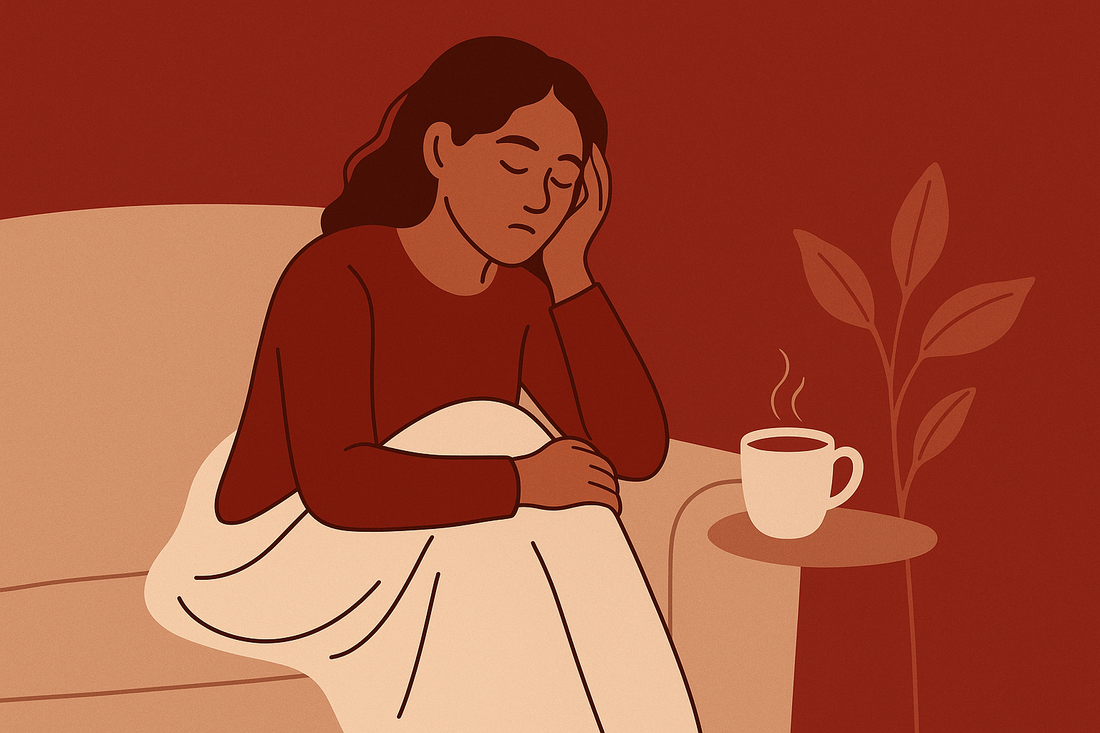Why Is My Period Late?

Why Is My Period Late?
Why is my period late? It’s a question that almost every woman asks at some point. While pregnancy is often the first thought, there are many other reasons a period can be delayed. Stress, lifestyle changes, hormones, or health conditions can all affect your cycle.
At SheCycles, we’re here to help you understand what’s happening in your body—so you can feel less anxious and more empowered.
What’s the Normal Range for Period Delays?
A “late period” doesn’t always mean something is wrong. The average cycle is 28 days, but anywhere from 21 to 38 days can still be normal.
Doctors usually consider a period “late” if it’s more than 7 days past your expected date. After 6 weeks without bleeding, it’s considered a missed period.
Common Reasons for a Late Period (Not Pregnant)
Delays can happen for many reasons outside of pregnancy. Here are the most common:
Stress
High stress raises cortisol, which can disrupt the hypothalamus, the brain’s period-regulating center. This can push your period back—or stop it altogether.
Weight & Lifestyle
Sudden weight gain, weight loss, restrictive dieting, or over-exercising can throw off your hormone balance, delaying your cycle.
Hormonal & Health Conditions
Issues like PCOS (Polycystic Ovary Syndrome), thyroid imbalances, or chronic illness can all delay periods.
Life Stages
- Adolescence: Periods are often irregular in the first few years.
- Perimenopause: Periods may skip or come late as hormones shift.
- Breastfeeding: Prolactin can delay ovulation and menstruation.
Birth Control & Medications
Starting, stopping, or switching birth control can shift your cycle. Some medications may also influence your period timing.

How Long Is It Normal for a Period to Be Late?
- A few days late is usually no cause for alarm.
- Up to a week late can still be within the normal range.
- More than 2 weeks late, especially if unusual for you, is worth paying attention to.
Why Is My Period Late If I’m Not Pregnant?
This is one of the most common concerns. Even if you’re not pregnant, your period might be late because of:
- High stress levels
- Intense workouts
- Hormonal shifts (like thyroid or PCOS)
- Illness or medications
- Changes in weight or diet
When to Take a Pregnancy Test—or Not
If your period is more than a week late, it may be time to take a test. For the most accurate results, wait at least 1–2 weeks after your missed period.
When Should You See a Doctor?
It’s best to seek help if:
- Your period has been late for 3 months in a row (and you’re not pregnant).
- You have severe pain, heavy bleeding, or other unusual symptoms.
- You’re experiencing fatigue, sudden weight changes, or hair loss with missed cycles.
What Can You Do Right Now?
- Relax → Stress can be a big trigger.
- Track your cycle → Apps or journals help you spot patterns.
- Eat balanced meals → Fuel your body with nutrients.
- Exercise moderately → Gentle yoga or walks can help regulate hormones.
- Rest → Prioritize sleep to give your body balance.

Find Comfort While You Wait
Sometimes the best thing you can do is care for yourself while your body catches up. Our Period Underwear is designed to give you comfort and confidence—whether your cycle is right on time or running late.
💡 Because no matter when your period arrives, you deserve peace of mind.
Conclusion
Delays happen—sometimes it’s stress, sometimes lifestyle, sometimes just your body’s natural rhythm. The important thing is knowing when to relax, and when to reach out for medical help.
Now you know the answer to why is my period late, you can move forward with calm awareness and confidence.
